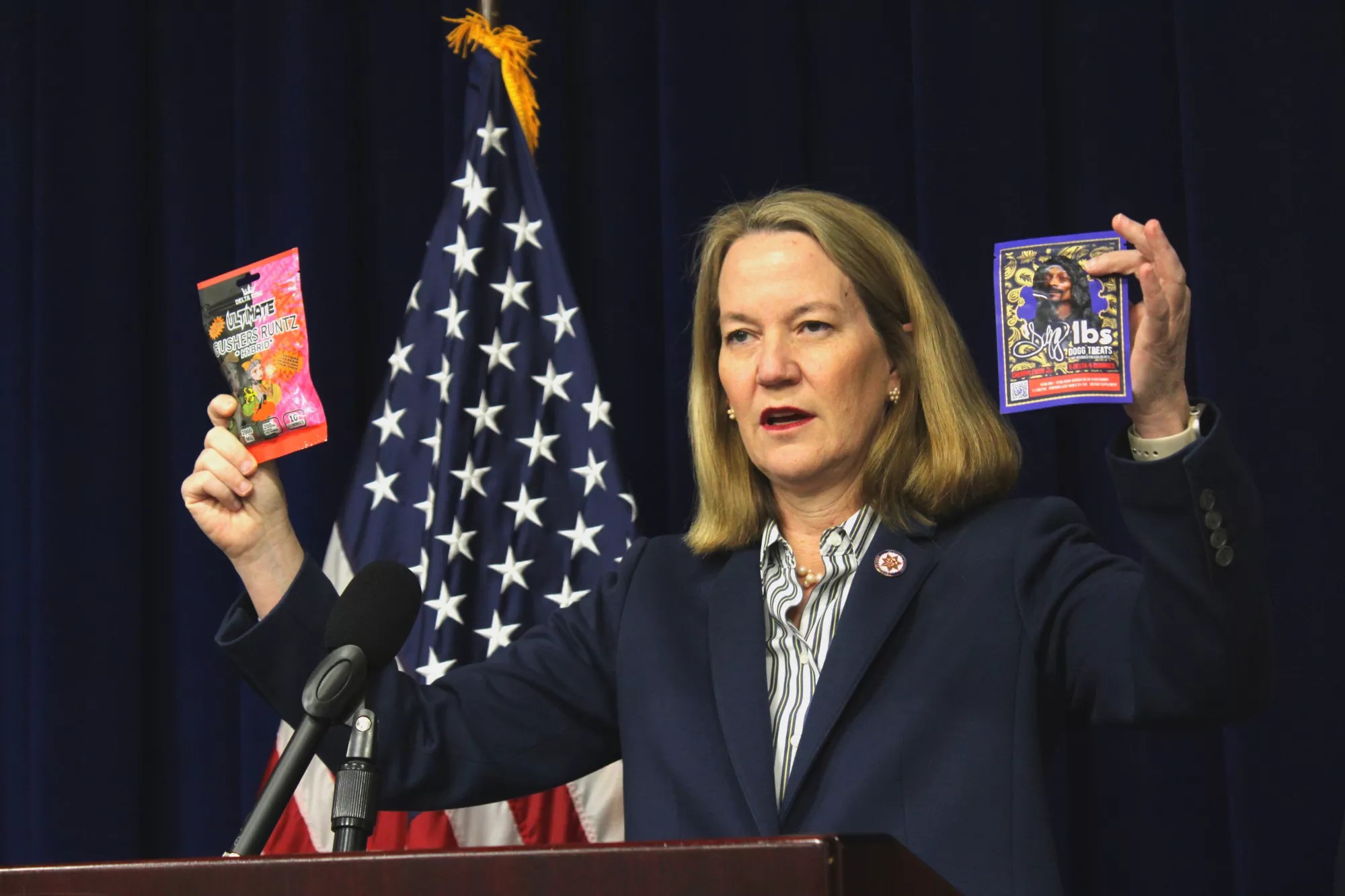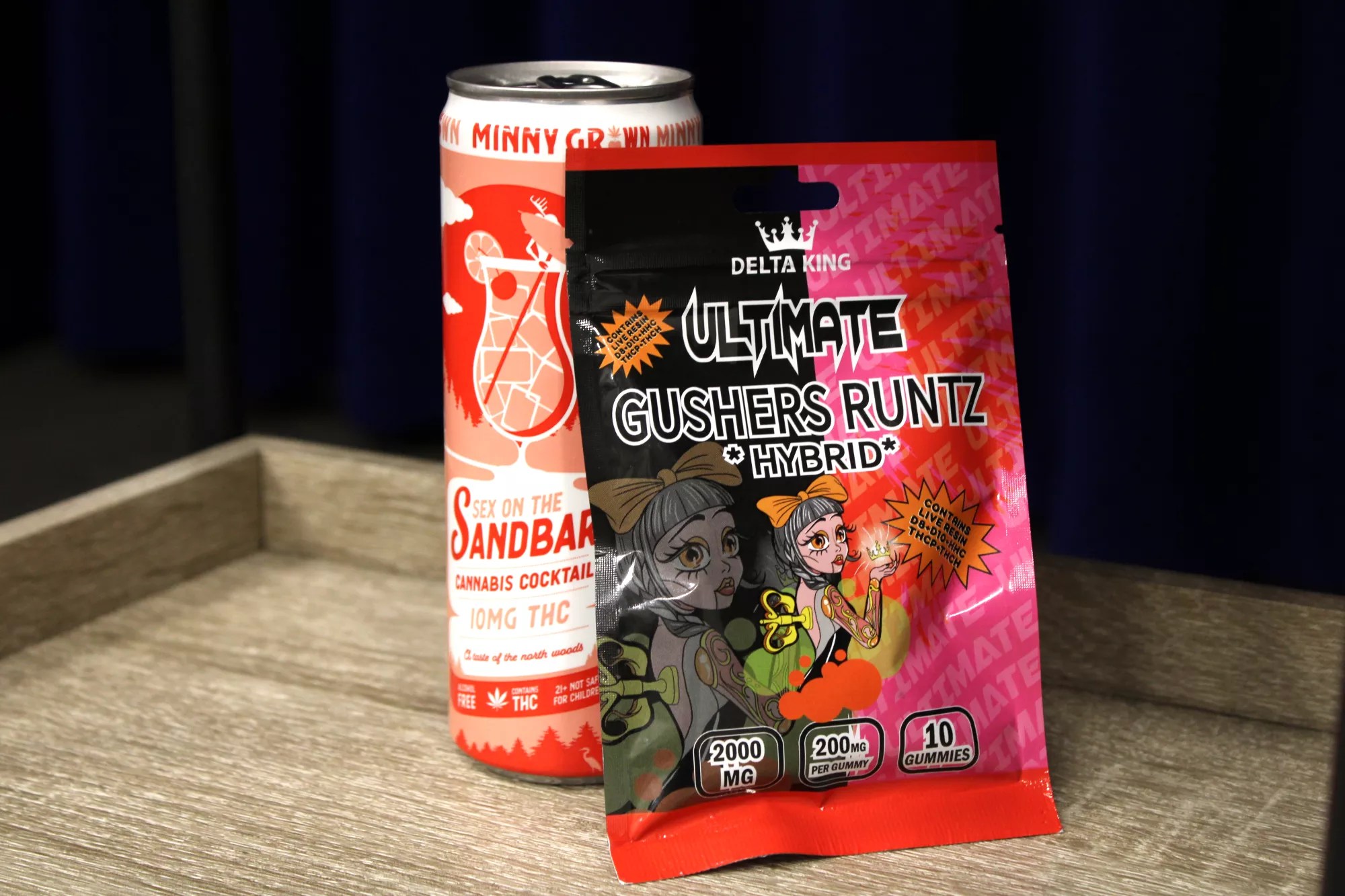
Morgan Fischer

Audio By Carbonatix
Kris Mayes can continue to crack down on hemp-based THC products sold in smoke shops and gas stations, at least for the time being. Last week, a Maricopa County Superior Court judge denied a preliminary injunction against the Arizona attorney general requested by the Hemp Industry Trade Association.
Mayes announced earlier this year that she would be levying stiff fines for sales of hemp-based THC products outside of licensed dispensaries. Such products – which include gummies, cannabis drinks and more – have proliferated in recent years due to what some view as a loophole in federal law.
Mayes thinks they’re illegal under Arizona law, and in a June 25 ruling denying a preliminary injunction, Judge Randall Warner agreed with her. In an 11-page opinion, Warner wrote that while Arizona’s 2018 Hemp Act legalizes the manufacture and sale of “industrial hemp,” the term means the cannabis plant itself. It does not mean consumable products derived from it, which he said are rightfully regulated by the Arizona Department of Health Services and covered under Arizona’s drug laws.
“THC-infused products are encompassed by the narcotic drug statute regardless of whether the THC derives from marijuana or hemp,” Warner wrote.
Warner also wrote that though producers of hemp-based THC products are likely to suffer “irreparable harm” as a result of the enforcement – which is one of the criteria for obtaining a preliminary injunction – HITA was not likely to succeed on the merits of the case. He also wrote that Mayes is likely not overstepping by targeting such products sold outside dispensaries.
“The Attorney General is not clearly acting illegally or in excess of her powers,” the judge wrote.
The hemp industry’s legal team is “analyzing the decision further” and will “provide a deeper breakdown soon,” HITA attorney Julie Gunnigle said in a statement. HITA will appeal the ruling.
“This is part of the legal journey we anticipated – and while we didn’t get everything we hoped for, there were some key wins worth noting,” Gunnigle said.
Mayes spokesperson Richie Taylor told Phoenix New Times that the attorney general’s office has not been enforcing the ban on hemp-derived THC sales while the legal challenge was pending.
“No fines have been levied as of yet,” Taylor said. He declined to say whether the ruling meant Mayes’ office will begin enforcing the ban in the wake of Warner’s ruling. “I don’t have any comments to make today on any plans for enforcement action,” he said.

Two THC-infused products that Arizona Attorney General Kris Mayes said could be easily purchased outside dispensaries.
Morgan Fischer
Legal confusion
The debate about the legality of hemp-based THC products is a result of a confusing overlap of laws.
Congress legalized industrial hemp in the 2018 Farm Bill, defining it as parts of the cannabis plant with less than 0.3% delta-9 THC content. However, producers of hemp-based THC products figured out that they can refine cannabis with higher levels of the less-potent delta-8 THC to provide similar intoxicating effects as some marijuana products.
In Arizona, marijuana products must be sold by licensed dispensaries, which are represented by the powerful Arizona Dispensary Association and regulated by the state health department. But hemp-based THC products have fallen outside that regulatory structure. Mayes argued in a legal opinion last year that they shouldn’t be.
Despite his ruling that consumable hemp products should be regulated like marijuana, Warner acknowledged that the laws on the subject could be clearer.
“To the extent there is confusion about whether Arizona allows selling hemp-derived THC outside of marijuana dispensaries, further legislation may be needed,” Warner wrote. “As written, however, Arizona law only allows THC products to be sold in licensed dispensaries.”
There’s more bad news for hemp producers: Republicans in Congress on the House Appropriations Committee advanced a major change to federal hemp policy that would outlaw hemp-based THC products – among others – at non-dispensary retailers. The measure has yet to be voted on by the full body. HITA executive director Sully Sullivan called the proposed law change an example of “small farmers and entrepreneurs are being sacrificed to protect corporate interests.”
HITA has regularly criticized the corporate influence of the dispensaries association in Arizona, which maintains a stranglehold on who can sell what weed products in the state. Sullivan has previously said that the Arizona Legislature should do more to regulate hemp products locally without banning them outright or forcing them to be sold in dispensaries. Those efforts – including a bipartisan bill introduced earlier this year by state Sens. David Gowan (a Republican) and Analise Ortiz (a Democrat) – have been unsuccessful.